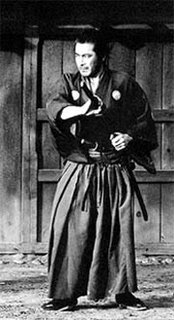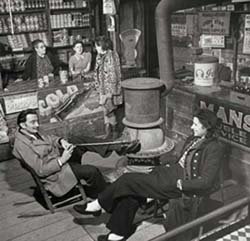Mark Warner and Wes Clark: A Fork in the Road for the Democrats?
It is a strange feeling of returning to your place of birth and finding that most everyone who lives here now is from somewhere else. Except for my hearty neighbors of extended families from
Quebec who have worked their way south, that is the fate of northern
New England. Liberals from somewhere else generally move to
Vermont. Conservatives from somewhere else generally move to
New Hampshire.
Most people from the deeper South still today can usually tell a Virginia Episcopalian from an eastern Kentucky Pentacostalist or a tar heel Baptist by language and manner – differences are still as rich and distinguishable as local flora and fauna in parts away from the cities. But when my dentist across from the Haverhill Common moves into retirement this spring there will be only two actual Yankees left up here on my count. And I believe my quiet and soft-spoken friend Burt, whose father and grandfather farmed the river banks here with teams of horses, is the only one today who still speaks proper mountain New England. (Which is quite a lot like the “high speech” of the mountain families, like the real Waltons, in western Virginia and West Virginia, but spoken in lower tones.)
and distinguishable as local flora and fauna in parts away from the cities. But when my dentist across from the Haverhill Common moves into retirement this spring there will be only two actual Yankees left up here on my count. And I believe my quiet and soft-spoken friend Burt, whose father and grandfather farmed the river banks here with teams of horses, is the only one today who still speaks proper mountain New England. (Which is quite a lot like the “high speech” of the mountain families, like the real Waltons, in western Virginia and West Virginia, but spoken in lower tones.)
Ulysses S. Grant wrote that prior to the Civil War the great mass of Americans were satisfied to remain near the scenes of their birth.
“So much was the country divided into small communities that localized idioms had grown up, so that you could almost tell what section a person was from by hearing him speak and studying his manner,” he wrote.
The sameness of people today is the great victory of federalism. But that is the price of federalism as well.
To a large extent we Americans have become people without places. What I find to be a sad phenomenon today is the current trend of people retiring in the towns where they went to college rather than where they or their families were born and reared. Such dislocation between generations contributes to the disintegration of family. An item in today’s paper tells of European legislators whose family ties go back to the days of Shakespeare. How many Americans today can even name their great grandparents? How many have no cousins or kin of any kind that they know of?
Instead of ties of blood, love and friendship, increasingly we have come to connect through ideas. And ideas, be they good or bad, are cold, calculating and contentious. And they don’t last.
So I was pleased to read a speech the other day by Mark Warner, Governor of Virginia, who seems to be considering the Presidency, when he spoke of the small-town America constituency which has drifted away from the Democratic Party in the last 30 or 40 years. Like my old town in North Carolina – Tobaccoville – where we raised our babies. Virtually everyone in Tobaccoville was born Baptist and Democrat. 80% has changed its voting registration in the last 30 years and a lot have changed their religion.
We can’t take a pass on region or religion, said Warner.
“We’ve never believed that some people count and some people don’t,” he said. “So we need to stop acting that way. That’s not who we are, and we’ve got to make that clear.”
The Democrats are particularly vulnerable to ideas and the vicissitudes of what I would call genre politics – identifying with a theme rather than with a place. Like my new neighbors here in the mountains, they seem to increasingly resemble the transitory direction of the English department, disconnected and disassociated in spirit, and held together in their opposition to power in a strange amalgam of lesbian, ethnic, gender and transgender studies. Increasingly identifying with the discontent of every stripe and at every turn, rather than with the civilization. But the will of the intentionally discontent only makes the power it opposes grow stronger.
The fate and failure of genre politics should be foremost on the mind of Democrats as a new and very critical Presidential race opens upon us. Warner correctly looks at the race in a 30 and 40 year framework. First and foremost, Democrats should recall that in the last 30-some years they have twice lost the Presidency by 49 states to one state. One more such a performance and the Democrats will have gone the way of their effete and self-righteous ancestors, the Whigs. And that is where I see them going.
Howard Dean has lead the way to Magic Mountain politics for the Democrats. Recall, The Magic Mountain was a novel written by Thomas Mann about the retreat of the middle clas in Germany from political responsibiliy. Dean's comments today set the benchmark. As he said to the San Antonio, Texas, radio station WOAI that "the idea that we're going to win the war in Iraq is an idea which is just plain wrong."
Iraq is pulling them down. It is pulling Bush down as well, but it is pulling the Democrats down even more drastically. And strangely enough, the descent started in a rumor I first heard expressed in the Legion Hall. Not my Legion Hall up here in New Hampshire, but at a Legion Hall in the News Hour report with Jim Lehrer report. One of their correspondents, Kwame Holman, went out to the heartland – Iowa, I believe it was - to check in and see how the war was going. He spoke to an old veteran who he’d spoken to during the first Gulf War, who was disillusioned about this war.
“We have already won this war,” he said. “Now we are losing the peace.” We should declare the war won, much as Bush did when he declared, “Mission Accomplished” all dressed up in a Commander-in-Chief flight suit on the deck of an aircraft carrier, and come home.
Now I’ve heard it again, the same phrasing repeated verbatim by Rep. John Murtha of Pennsylvania, who calls today for a removal of American troops from Iraq.
It sounds great, but it is not true. We have not won the war in Iraq. And if we follow Murtha’s initiative, we will indeed lose the war. But already, important and significant Democratic figures are echoing these phrases. Including the most influential Rep. Nancy Pelosi, who represents San Francisco in the House of Representatives.
“We should follow the lead of Congressman John Murtha, who has put forth a plan to make America safer, to make our military stronger, and to make Iraq more stable,” she said. “That is what the American people and our troops deserve.”
As far as I know, Warner has not made any major statements on the war on Iraq. If he wants to be President he must, and soon. His comments here in New Hampshire a few weeks back were thoughtful and responsible. With critical elections coming up in Iraq in the next few weeks, he said, now would not be the time for Congress to take any steps to dilute the efforts in Iraq.
It was markedly different from what I’ve been hearing from a sea of Democrats today. The Democratic Senators complaint that they were deceived by the President on their vote for invasion and duped by the neocons is hollow and inauthentic. Of course they were. But everyone inside the Beltway in Washington knew what was going on with the pending invasion of Iraq and the Senators fell into the impetuous state of war fever to please their constituents, who were understandably hungry for a quick fix in a complex situation. Yet everyone inside and outside the Beltway had the wise counsel of men like Brent Scowcroft, perhaps the best mind in foreign policy since George Kennon, and countless others, to tell them the truth.
Invariably, the situation in Iraq is being compared to Vietnam, but I see this as a false analogy in several ways. The war on Iraq was partly a deception on the part of the administration, but it was instigated by a massive attack on American soil and symbols – the World Trade Centers and the Pentagon. This was a great psychological hit on the country and will remain as a milestone for millennia. But here is the truth about war: In a major conflict there will always be two objectives, one stated and one unstated. The first need is to neutralize the situation – to remove the threat to society. The second need is the ugly fact of revenge. Revenge brought the price of Pearl Harbor to the nuclear attack on Hiroshima. Revenge brought the price of Southern secession to the burning of the South by William Tecumseh Sherman. Revenge brought the price of the death of he whom the Indians called the Long Hair, George Custer, to Wounded Knee. And revenge brought the price of the attack on the Pentagon and the World Trade Centers to the invasion and destruction of Iraq.
This is the ugly reality of warfare even in civilized nations. But in most cases, the revenge kill comes only after the situation has been neutralized, as a punishment to the enemy. That terrorist threat in case has not been stabilized and instead has become increasingly complicated because of the war on Iraq. Yet neutralization of the threat of terrorism still needs to be done.
Although it does not compare in scope and tragedy and historical consequences, there is one aspect of this war in Iraq which resembles the build up to the Civil War. After the election of President Lincoln, the North was ready to fight, you might say, but not prepared to fight. Just as in the build up to the invasion of Iraq, the neocons sent their apparatchiks, including Richard Perle and Charles Krauthammer, to propagandize at home and abroad, promising that the Iraqi people would welcome the invaders, so the North took the advise of sympathetic writers who convinced them that invasion of the South would be a quick ride and a cake walk, as the “poor white trash” were too drunk and too lazy to fight. Frederick Law Olmstead advanced this position and lesser lights followed up in popular accounts preceding the conflict. It brought a patriotic wave to the North and many volunteered, but years of tragic and unnecessary slaughter followed, costing tens of thousands of lives, and two years later, the Confederates were in Pennsylvania. The Army of the Potomac was then forced to fight with the most brutal strategies and bring in some of the hardest and sometimes the most degenerate of men as officers and as troops.
The point has been made that we were not prepared to fight this war and it is clear now that we were not. Still the situation persists and it must be dealt with.
But this war will not follow as Vietnam did – the situation will disappear if we just pack up and go away. We cannot pack up and leave the Middle East. More important, the dangerous situation which brought us there – rightfully or wrongfully – has not been neutralized. The headline today on my local paper reads: “9/11 Probe Chiefs See Grave Risks – They deplore failure to take advised steps.”
“The U.S. is at great risk for more terrorist attacks because Congress and the White House have failed to enact several strong security measures, members of the former Sept. 11 commission said yesterday,” reads the Associate Press report by Hope Yen.
It should have been the original work and the object in the war on terrorism. But like it or not, it is still work that needs to be done.
Warner and any other fledgling Presidential candidate should know that there is hope and there are other options. There are, in fact, two Democratic positions, but only the cry of retreat from Dean, Murtha and Pelosi, is heard loudest. And the call to cut and run comes increasingly from Republicans as well.
The other option is from Wesley Clark. There is much that would appear to bring these two men together, Warner and Clark, and perhaps there is here even a fork in the road for the Democrats.
General Clark’s position should be the Democratic Party’s position and it should be the country’s position. It took two years of chaotic fighting in random surges and retreats before the North truly faced the situation in the Civil War. It took several years of conflict abroad and a direct attack on Pearl Harbor before America faced its fate in World War II. We faced a difficult situation after 9/11 and again after the invasion of Iraq. We face a difficult situation today.
When he signed the register to enter the New Hampshire primary, Clark held a news conference for the few reporters present and told them that he would engage the Saudis and seek their help in going after Osama bin Laden. He opposed the Bush administration’s invasion of Iraq at every turn, but accepted the new realities of America’s situation in the Middle East as the situation unfolded. Recently, he has been appearing on Sunday talk shows and has posted op-eds in The New York Times and The Washington Post, expressing his position very clearly.
“In the old, familiar fashion, mounting US casualties in Iraq have mobilized increasing public doubts about the war,” he writes. “Now, more than half the American people believe that the invasion of Iraq was a mistake. They’re right. But it would also be a mistake now to pull out, start pulling out, or set a date to pull out. Instead we need a strategy to create a stable democratizing and peaceful state in Iraq – a strategy the administration has failed to develop and articulate.”
From the onset, he says, we needed a three-pronged strategy in Iraq - diplomatic, political and military. And we needed to engage Iraq’s neighbors to ensure that a stable, democratizing Iraq was not a threat to them. He gives a highly detailed approach to stabilizing Iraq, the kind of thing that often tested reporters looking for 30-second sound bites during his campaign in New Hampshire.
But as Iraq faces a descent into chaos if the Sunni’s fail to find appropriate representation, a notion upon which the Bush administration is staking its claim to victory, Clark takes a different approach.
“The U.S. should tone down its raw rhetoric for U.S-style democracy as an answer to all problems and instead listen more carefully to the many voices within the region,” he says.
Clark calls for a public U.S. declaration forswearing permanent bases in Iraq which would also be helpful in engaging both regional and Iraqi support at this point. And in addition, he says the U.S. needs a legal mandate from the government to provide additional civil assistance and advice - along with additional U.S. civilian personnel aimed at strengthening the institutions of government. There will be continuing need for assistance in institutional development, leadership training and international monitoring for years to come and all of this must be made palatable to Iraqi sovereignty.
Countries far away like Canada, France and Germany should be called in to assist and the Gulf States should also provide observers and technical assistance. Ten thousand Arab Americans with full language proficiency should be recruited to assist as interpreters and over time, American forces should be pulled back into reserve roles and phased out.
“The growing chorus of voices demanding a pull-out should seriously alarm the Bush Administration,” writes Clark. “For President Bush and his team are repeating the failure of Vietnam – failing to craft a realistic and effective policy, and in its place, simply demanding that the American people show resolve.”
General Clark literally came home from Vietnam a basket of near-fatal wounds and broken bones but, as he has shown in Vietnam and Kosovo, he is nothing if not tenacious. And the issues he presents will not go away. His reemergence in the press may be a sign that we are beginning to face the mess we created when more than 75% of voters in our country approved of this mind-boggling fiasco in Iraq. It has been my feeling from the beginning that when we are ready to face the music we will turn to Wesley Clark.
The Democratic Senators who voted for the war on Iraq and now want to pull out will not be convincing to the American public. In the next election the Democrats will look for a governor. Mark Warner may be the right choice.
Both Warner and Clark represent a new kind of politics for the Democrats, a politics that sees management solutions to problems and comes from the world of management. We live today in a descending quagmire of interacting crises and in a politics of denial and revenge, but in the end it comes down to a crisis of management.
It is only these two among the Democrats who propose a management solution.
 Essay - Why I Love
Essay - Why I Love 











